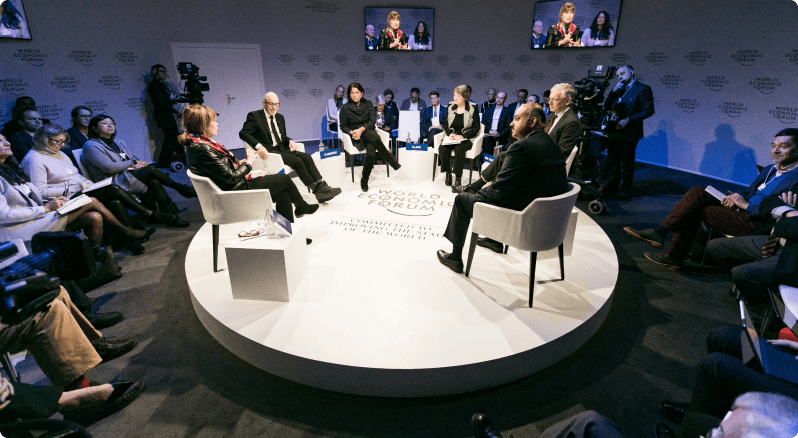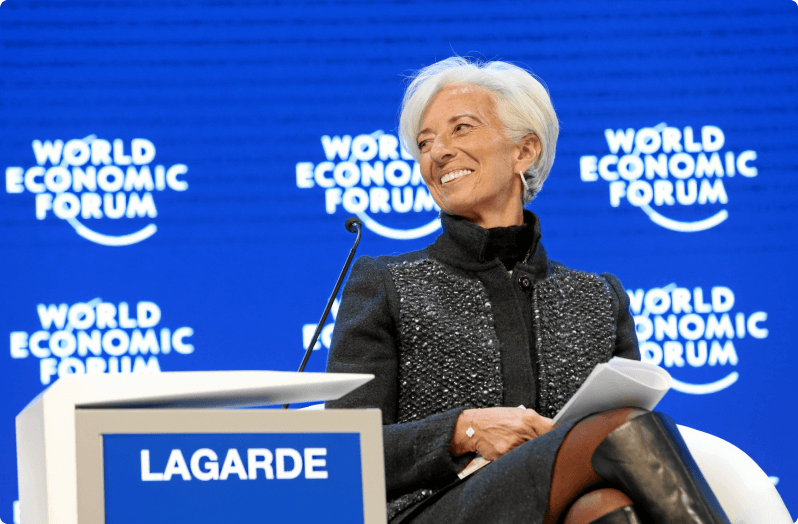
Davos 2024: What is it and why is it important?

Prasad Gollakota
20 years: Capital markets & banking
Every year, government leaders and the business elite gather in Davos, Switzerland for the World Economic Forum’s Annual Meeting

What is the World Economic Forum’s Annual Meeting? What is the Open Forum?
The World Economic Forum (WEF) holds a yearly meeting, often referred to simply as ‘Davos’, given it takes place in the small Alpine village of the same name in the eastern part of Switzerland.
The World Economic Forum was established in 1971 by Klaus Schwab, a German professor and economist, who is the current Executive Chairman of the WEF. As a not-for-profit foundation, the Forum says it is committed to improving the state of the world by being the international organisation for public-private cooperation. It aims to engage the foremost political and business leaders of society to shape global, regional and industry agendas.
The Forum’s Annual Meeting, which spans four days and usually occurs in January, is a hotspot for prime ministers, presidents, leaders of central banks, CEOs and executives from various industries and geographies. It highlights key business and political outlooks for the year ahead and is watched closely by media, academics and innovators.
During the same week in January, there is another conference hosted by the WEF that takes place in parallel to the Annual Meeting in Davos. This conference, called ‘the Open Forum’, brings together thought leaders across politics, business, civil society and academia to discuss global challenges and issues. Often, the Open Forum and the Annual Meeting may get confused for one another, but the key difference is that the Open Forum remains accessible to the public and is entirely free of charge, while the Annual Meeting is by invitation only.

What is discussed at Davos? Who attends?
Every year, a key theme for the meeting is decided with additional supporting themes.
This year, the main focus of Davos 2024 is ‘Rebuilding Trust,’ and hopes to restore trust on three levels: for the future, within societies and among nations. Its goal is to provide a space to look at the principles driving trust, including transparency, consistency and accountability.
The four priorities for the 2024 conference are the following:
Achieving security and cooperation in a fractured world
Davos 2024 will take a closer look at the security crises’ currently impacting governments worldwide. The focus will be on encouraging long-term and structured engagement between governments, with the hopes of inspiring cooperation.
Key speakers: Antonio Guterres (Secretary-General, United Nations), Antony Blinken (Secretary of State, US Department of State)
Creating growth and jobs for a new era
A new economic framework to drive growth and ensure people are at the centre of that prosperity, is on the agenda at Davos 2024. Sessions include discussing supply chains of the future, the race to reskill workers and how society will have to navigate longer lifespans and the implications that will have on work and retirement.
Key speakers: Christine Lagarde (President, European Central Bank), Ngozi Okonjo-Iweala (Director-General, World Trade Organization)
Artificial intelligence (AI) as a driving force for the economy and society
How can AI be used to benefit everyone? Artificial Intelligence will be another topic discussed at Davos 2024 and the Open Forum. Experts will discuss how AI can be used alongside other transformative technology like 5 / 6 G, quantum computing and biotechnology.
Key speakers: Sam Altman (CEO, OpenAI), Jeremy Hunt (Chancellor of the Exchequer, HM Treasury of the United Kingdom), Julie Sweet (Chair and CEO, Accenture)
A long-term strategy for climate, nature and energy
As 2023 has officially been confirmed as the world’s hottest year on record, greater emphasis is being placed on finding long-term strategies for becoming carbon neutral and nature-positive at Davos 2024. A few of the sessions will focus on the energy transition, making circular fashion fashionable, and the financial risks of climate change.
Key speakers: Inger Andersen (Executive Director, United Nations Environment Programme), Jane Goodall (Founder, Jane Goodall Institute; United Nations Messenger of Peace)

Why is Davos 2024 important to everyone?
One of the key distinctions of the Davos meeting is the timing of the conference.
With the exception of 2021 and 2022, the meeting has always taken place at the beginning of the year and is meant to set the stage for what to expect in the following months. Along with the United Nations’ annual Conference of the Parties (COP), the WEF’s Annual Meeting is one of the most important events global leaders in politics and business attend.
While COP is usually held towards the end of the year to reflect on the progress (or regress) made in the fight against climate change, Davos takes place in January to serve as a jumping off point or harbinger for the year.
Despite the criticism that Davos is a social opportunity for the world’s wealthy and elite to connect, the importance of this meeting really comes down to the expert commentary provided by leaders across politics and business. It is an event commentators and media worldwide focus closely on.
Along with their outlooks, there have been positive outcomes and partnerships that have originated from the meeting. Most notably, in 1988, an agreement known as the Davos Declaration was signed and was credited with averting war between Turkey and Greece. Years later, in 1992, Nelson Mandela made his first public appearance outside of South Africa after being released from prison two years earlier. He met with South African President F.W. de Klerk and Chief Minister of KwaZulu, Mangosuthu Buthelezi, and the meeting helped set the stage for a new path forward for the country.
With the focus of Davos 2024 being to “Rebuild Trust”, it will be interesting to see if (and how) that impacts the economic and political events of this year.

Prasad Gollakota
Share "Davos 2024: What is it and why is it important?" on





















